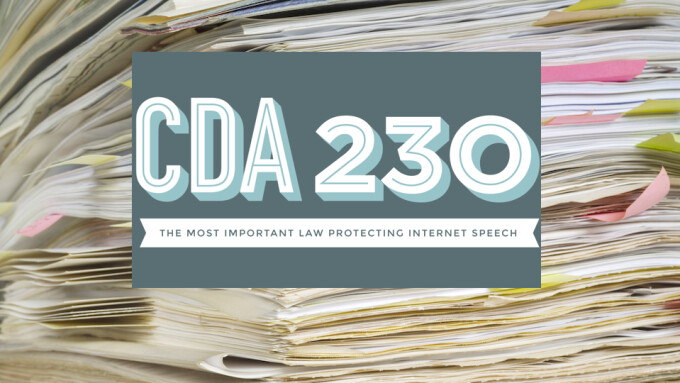[Update, 4:35 p.m: Added yet another just-released bill: the House version of EARN IT introduced this afternoon by Representative Sylvia Garcia (D-Texas)]
WASHINGTON — As an unprecedentedly chaotic and fractious electoral campaign heads into its final month, a flurry of new proposals by members of both major parties targeting Section 230 — the so-called “First Amendment of the internet” — join a crowded debate about the controversial legislation.
Over the past few weeks the following proposals have been adding fuel to a bipartisan effort — though particularly propelled by Donald Trump’s feud with social media platforms, A.G. William Barr’s highly politicized Department of Justice and Congressional GOP moral crusaders like Lindsey Graham — to suspend, limit or abolish longstanding liability protections for internet platforms and services:
- The House version of the EARN IT Act, introduced by Representative Sylvia Garcia (D-Texas)
- The “Don’t Push My Buttons” Act, introduced by Senator John Kennedy (R-La.) (9/29/20)
- The “See Something Say Something” Act, introduced by Senators Joe Manchin (D-WV) and John Cornyn (R-TX) (9/29/20)
- A highly unusual “draft legislation recommendation” by William Barr’s Department of Justice (9/23/20)
- The “Online Content Policy Modernization" Act (S.4632) introduced by Senator Lindsey Graham (R-S.C.) (9/21/20)
- The “Online Freedom and Viewpoint Diversity" Act, introduced by Senators Roger Wicker (R-Miss.), Graham and Marsha Blackburn (R-Tenn.). (9/8/20)
A Smörgåsbord of Proposals
This ever-growing smörgåsbord of proposals, all curtailing Free Speech online and digital rights in the name of various causes, now joins the longstanding attacks on 230 which picked up steam earlier this summer as Trump became enraged by attempts by social media platforms to moderate his messaging and that of his son and other followers.
Before September these included:
- The PACT Act, introduced by Senators John Thune (R-S.D.) and Brian Schatz (D-Hawaii) (6/24/20)
- Trump’s unprecedented “Executive Order on Preventing Online Censorship” (5/28/20)
- The EARN IT Act, introduced by Graham (3/5/20)
None of these proposals are identical, and all of them prioritize the specific interests of their sponsors, from Graham’s insistence in creating a new government bureaucracy to make decisions about what instance deserves protection from liability and which one does not, to the folksy cluelessness of Senator John Kennedy’s bizarre obsession with mind control and manipulation, to the more bipartisan PACT Act, which many observers consider the adults-in-the-room option among this colorful carnival of election-year legislative ingenuity.
Half-Baked Proposals
Legal scholar and Section 230 expert Jess Miers, currently at Google, told XBIZ she “remains baffled that our elected leaders continue to prioritize burning down the internet as our country gets sicker, weaker and closer to the brink of an all-out civil war.”
“The only thing we should be talking about right now is how we’re going to put an end to [this situation],” she said. “Instead, our Senators are churning out half-baked proposals to amend Section 230 in ways that will hamstring websites from fighting pernicious content.”
For Miers, each of these bills share a common theme: to make it harder for websites to remove what she calls “lawful but awful” content.
“Each of the supporters of these bills, the DOJ, and many others, have taken a stance in favor of keeping socially harmful content on the web,” Miers said. “It’s especially disgraceful at a time where rampant misinformation and disinformation threaten the integrity of our elections, our democracy and our health.”








